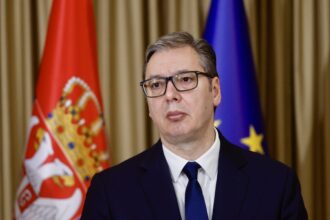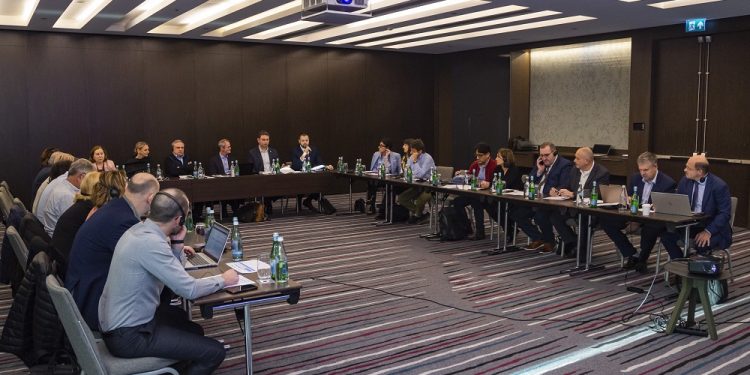With the support of EU, Georgia makes a significant step forward with the Sectoral Reforms in Official Control in the areas of Food Safety, Veterinary, Plant Protection and Plant Protection
The Czech Development Agency (CzDA), in collaboration with the Food and Agriculture Organization of the United Nations, continue to support Georgia’s reforms for the improvement of the Food Safety, Veterinary and Plant Protection sectors. This is done through the support of the European Union and Sweden under the EU-funded ENPARD IV Project “Support to the Food Safety and SPS Sectors in Georgia”. In this context, the parties organized an intensive three-day workshop to provide guidance and assistance in implementing Official Control Regulation #625 into Georgian legislation. Experts from the Czech Republic, Italy, and other donors were invited to lead the workshop. Policymakers, regulators and field specialists in Georgia attended. The event took place at the Sheraton Tbilisi, Metechi Palace.
Tbilisi. November 27-29 2023 – This workshop marked the first step in the European Union’s comprehensive assistance in Georgia in implementing the Official Control Regulation. The content of the sessions were designed to address Georgia’s current relevant challenges. The first two days were dedicated to the EU Regulations 2017/625 and 2016/2031 on Official Control. They covered the general content, requirements and implementation of the EU Regulations in the Plant Health field. The third day of this workshop focused mainly on the possible application in Georgia of the EU Regulation 2017.625.
Denis Reiss delivered the opening address at the event. He is the Programme Officer for Sustainable Food Systems in the Delegation to the European Union in Georgia. Mr. Reiss thanked workshop organizers for their support in helping Georgia to take the first steps towards acclimatizing its official control laws in the areas of food safety, veterinary and plant protection with the European Union.
“Such an approche will certainly efficiently protect the crops’ health while safeguarding the farmer’s revenues, biodiversity, and the environmental and ensure the safety of food and animal feed made from plants cultivated responsibly by farmers and food business operators. This first step not only reflects commitments made by the Government of Georgian in the DCFTA with European Union to extend and diversify the market access of Georgian agriculture products, but also takes into consideration the latest development of “farm-to-fork strategy” implementation in the EU which has a target of a 50% reduction in overall use of chemical plant protection products with a 50% reduction in risk.
Within the workshop, the Czech plant protection experts, Mr. Michal Hnizdil and Mr. Petr Vaculik held sessions focused on plant protection interpretation/implications of the mentioned EU regulations for plant protection official controls and included information about the EU and Czech experience. The FAO consultant Mr. Ruggero urbani, an Italian food safety expert, then delivered sessions on the possible application of EU Regulation 2017/625 to Georgia. The event was attended by over 40 professionals in Georgia’s food, veterinary and plant protection fields.
Blanka M.Remesova, Head of EU Funded Projects in Georgia, Czech Development Agency, said: “The Czech Republic has fresh experience in the implementation and implementation of EU Regulations 2017/625 and EU Regulations 2016/2031 which are closely related to the quality of living of the country’s residents. We are therefore happy that Czech experts who have been involved with the implementation and implementation of these regulations can share their knowledge, experience and experience with Georgian professionals and partner.”
Tengiz Kalandadze, the Head of the Primary Structural Unit of the Agriculture, Department of Food Policy of the Ministry of Environmental Protection and Agriculture of Georgia, expressed his thoughts following the participation in the Workshop:
“As you may know, Georgia and the European Union have a Deep and Comprehensive Free Trade Area Agreement, or DCFTA, in which the Georgian government is required to align its legislation with that of the EU. Today we are going to discuss one of the most important EU Regulations, Regulation 2017/625. This regulation covers issues such as food safety, animal health and plant health, organic production and geographical indication. “I thank the donor organizations that have worked with us, and brought highly qualified experts who helped us to align our legislation with the EU.”
Javier Sanz Alvarez (FAO Programme Coordinator) explained that it is important to have a regulatory framework in place during the process of approving the food safety standards of Georgia to those of European Union.
“The regulation of Georgia’s official control system is the cornerstone of Georgia’s full food safety systems.” We are delighted to join forces with Czech colleagues under the ENPARD program financed by the European Union (EU) and Sweden to support this important process for Georgia’s Future”.
According to Georgia’s legislative acclimatization plan to the EU and the commitments made by the Government of Georgia in the Deep and Comprehensive Free Trade Area Agreement with the European Union (DCFTA), the country will implement the EU Regulation 2017/625 regarding official control in the areas of food safety and veterinary and plant protection next year. Georgia’s state control over food safety, veterinary care, and plant protection must be brought in line with the relevant legislation from the European Union. The workshop, which will be organized by CzDA and FAO from November 27-29 2023, is a part of the large-scale support that the European Union is providing to Georgia.
ENPARD is the programme that the European Union uses to support rural development in Georgia. ENPARD, which aims to reduce rural poverty since 2013, has been implemented. The Programme began by supporting the development and potential of national agriculture. The Programme then focused on creating economic opportunities in rural Georgia. Since 2021, this programme has also worked on improving food security in the country with additional support from Sweden and FAO as the main implementers.
This article was produced with the help of the European Union. The Czech Development Agency is solely responsible for the content of this article, which does not necessarily reflect the views or opinions of the European Union.
Read More @ georgiatoday.ge













